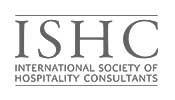Sustainable F&B operations can create valuable profit partner | By Brita Moosmann, ISHC
Traditionally, food-and-beverage operations have been labeled the “poor cousin” as a low-profit department of a hospitality operation. This largely is because of the amount of labor for food production in addition to the amount of goods and services needed to deliver the product. 
Sustainable and responsible operation of F&B departments will automatically enhance profitability because it allows the management team to have lower operating costs. This is unfortunately often offset by the loss of previously lucrative income streams, such as bottled water. But we are seeing many signs that providing an option for sustainable meetings and serving F&B products with less waste and more of a local flavor has the potential to more than outstrip some of those conventional revenue streams in F&B.
There is strong evidence that hospitality operations need to rethink how they do F&B and events and meetings in order to be a strong competitor in the future. Companies searching for conference and convention locations increasingly are searching for those hotels that have a strong sustainability program, and can provide carbon dioxide emission counts of every aspect of the conference delivery, so that appropriate carbon offsets can be made available.
Michelle Leroux, director of sales and marketing at the Delta Chelsea Hotel in Toronto has noticed a shift in the booking inquiries: “It isn’t so much that having a ‘green’ or ‘sustainable’ meeting package sells additional pieces of business—it is more along the line that certain groups will not book at your hotel if you can’t demonstrate knowledge and experience with sustainable meetings.”
Herve Houdre, the former GM at the Willard InterContinental Hotel in Washington, D.C., estimates that the extensive sustainability at the hotel have resulted in upwards of US$800,000 of incremental group volume during the current calendar year. So, if your operation is better and more advanced at providing sustainable meeting and event management, then your hotel has a competitive edge in the marketplace for additional volume—both on the rooms and on the F&B side. Houdre currently is the regional director of operations for InterContinental Hotels Group and the GM of InterContinental Barclay in New York.
The best way to start the process of making F&B more sustainable and profitable is to conduct a comprehensive audit or evaluation of your F&B operation to provide a baseline in terms of energy efficiency and carbon footprint; they should be part of an overriding strategy that will provide an in-depth analysis of the organization’s sustainable position. This evaluation also should measure the impact of the various elements on the organization’s stakeholders, and have a total quality approach in regards to customer satisfaction. It is also advisable to understand your local territory and obtain feedback to understand what is important to the local community.
The facts are surprising: Recent studies and trend reports have found that stakeholders are very interested in environmental issues but are unaware of ways to participate. Becoming the sustainability leader in this area provides an excellent way to emotionally connect with your customer, and better yet, to engage them in the process.
Following are a few simple and cost-effective ways of starting on a more sustainable and responsible path of F&B operations, compiled by Matthew Vallarino, my associate partner in Turin, Italy. As a next step, your organization then can build on these initiatives and gain increasing expertise in sustainable meetings and events by applying and adapting additional sustainability criteria and standards offered by many organizations. The problem is, there have been so many criteria and standards that it is difficult to decide which ones are most suitable (International Standards Organization, Meeting Professionals International, American Hotel & Lodging Association, Green Meeting Guide Canada, Energy Star, British Standards, to name just a few). A new global initiative called Tourism Sustainability Council will be formed in early 2010, which has as its goal to define the global standards and criteria, and should make selection easier.
Events and catering
- Use washable plates and dinnerware that fit easily into eco-friendly washers in order to maximize washing effectiveness and efficiency while minimizing waste;
- Use cloth napkins and tablecloths and use eco-friendly green products to clean them;
- If possible, avoid purchasing condiments (sugar, sauces, etc.) in small containers; instead buy bulk and from local suppliers;
- Serve water in pitchers or refilled water bottles; avoid bottled water and only fill glasses when needed;
- Recycle and separate waste; work with your local waste-management provider to ensure an efficient and effective system;
- Try to eliminate as much plastic (plastic containers, plastic wrap etc.) as possible. If unavoidable, use products made from recycled and/or alternative materials;
- Continue with first-in, first-out supply handling to minimize waste and unnecessary shipments; and,
- Contact your equipment suppliers. New equipment might not be as expensive as one might think. There have been cases where it was quantitatively cheaper to change equipment because of fiscal and financing incentives in addition to the reduced consumption costs, like energy for example.
Supply chain for food-and-beverage products
When speaking to suppliers and service providers ask:
- Are they local? Do they source local products?
- Do they provide a certain percentage of organic products?
- Do they source fair trade products? More customers are asking, and this means that tastes are changing.
Source local supplies when possible; if unavailable, know your suppliers and apply effective metrics to ensure optimum procurement. Know where your fish and meat come from and try to only buy locally from trusted and committed suppliers.
Next week’s article will bring this series to a conclusion by providing some practical ideas and tips to enable your operation to measure your impact and progress, to give you a competitive edge and maximize profit potential in addition to being sustainable and responsible.

Sustainable investment and ROI: What all hoteliers should know | By Kit Cassingham, ISHC
Sustainability can pump profits | By Brita Moosmann ISHC, Kit Cassingham ISHC
Vesta Consulting
www.vestaconsulting.com/
1070 - 1200 West 73rd Avenue
Vancouver, BC V6P 6G5
Canada
Phone: 604-723-6904
Fax: 775 239.1577
Email: brita@vestaconsulting.com
How to keep the sustainability score | By Brita Moosmann ISHC, Kit Cassingham ISHC
Sustainability can pump profits | By Brita Moosmann ISHC, Kit Cassingham ISHC
